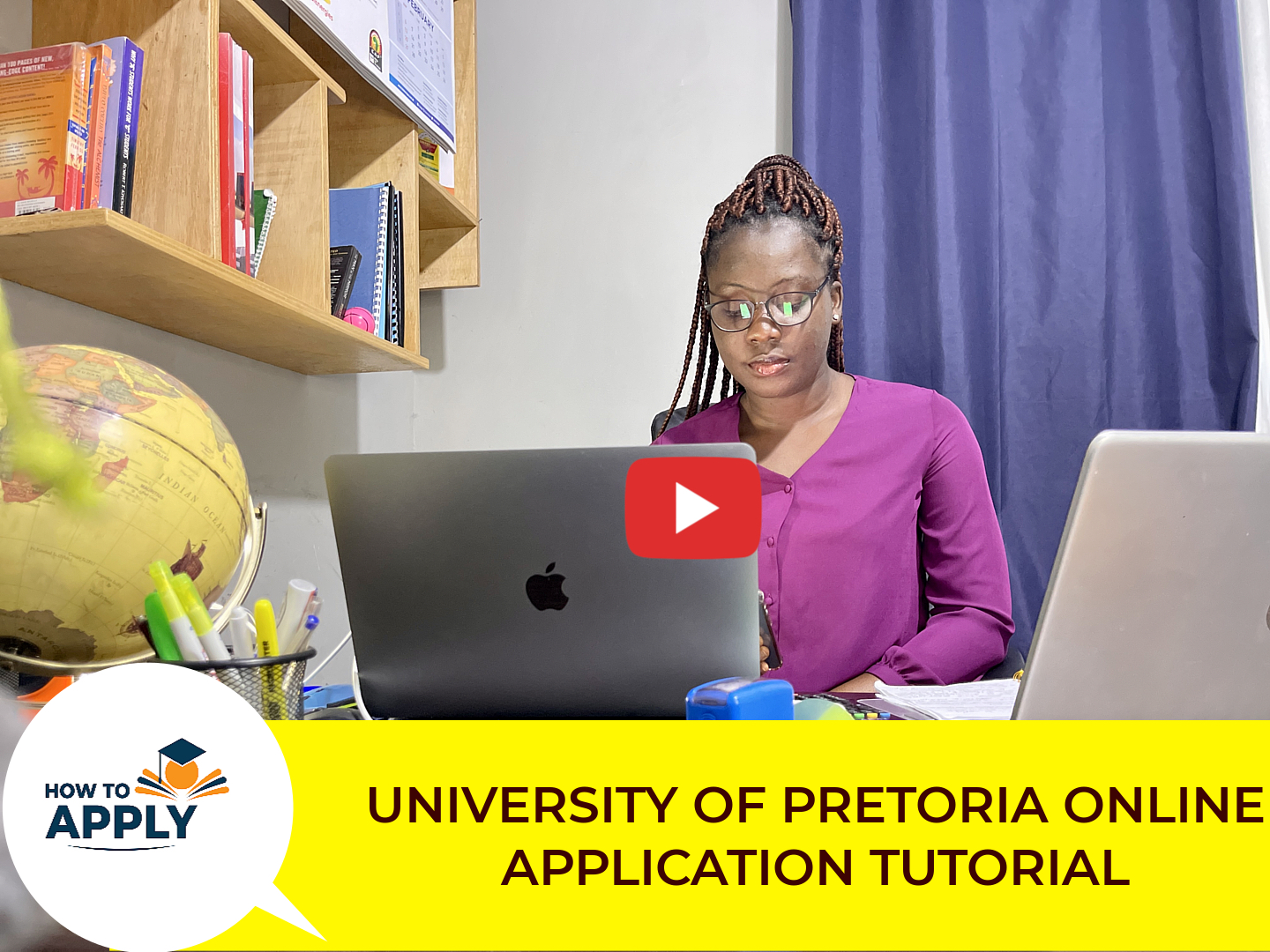University of the Witwatersrand Prospectus 2023-2024
University of the Witwatersrand Prospectus 2023-2024 – See Details Below:
Wits University is situated in Johannesburg, South Africa – a vibrant, leading commercial city on the African continent. The history of Wits is inextricably linked with mining, academic excellence, and with political and civic activism.
The origins of Wits University lie in the South African School of Mines, which was established in Kimberley in 1896 and transferred to Johannesburg as the Transvaal Technical Institute in 1904, becoming the Transvaal University College in 1906 and renamed the South African School of Mines and Technology four years later. Other departments were added as Johannesburg grew and in 1920 the name was changed to the University College, Johannesburg. Full university status was granted in 1922, incorporating the College as the University of the Witwatersrand, with effect 1 March. Seven months later the inauguration of the University was duly celebrated. Prince Arthur of Connaught, Governor-General of the Union of South Africa, became the University’s first Chancellor, and Professor Jan H. Hofmeyr its first Principal. Building began at Milner Park on a site donated to the University by the Johannesburg municipality.
In 1923, the University gradually vacated its premises in Eloff Street to move to the first completed teaching buildings at Milner Park (the Botany and Zoology block – housing the departments of Geology, Botany, Zoology and Applied Mathematics). The University had, at that stage, 6 faculties (Arts, Science, Medicine, Engineering, Law and Commerce), 37 departments, 73 members of academic staff and little more than 1 000 students. In 1925 the Prince of Wales officially opened the Central Block.
During the period between the two world wars severe financial restrictions were imposed upon the University. Nevertheless, student numbers were quite impressive – in 1939 2 544 students enrolled; that grew to 3 100 in 1945. The sudden increase in student enrolment after the Second World War led to accommodation problems, which were temporarily resolved by the construction of wood and galvanised-iron hutments in the centre of the campus. These huts remained in use until 1972.
The period between 1947 and the 1980s was marked by considerable growth – student numbers increased rapidly to 6 275 in 1963, 10 600 in 1975 and 16 400 by 1985. In 1951 the University awarded its 10 433rd qualification, in May 1981 its 50 000th and by 1988 its 73 411th.
The acquisition of additional property in adjacent areas became imperative. The medical library and the administrative offices of the Faculty of Medicine moved to a new building in Esselen Street, Hillbrow during 1964. The Graduate School of Business was established in Parktown in 1968. In 1969 the Ernest Oppenheimer Residence was formally opened in Parktown. Savernake, the official residence of the Vice-Chancellor, also located in Parktown, was made available to the University in 1969. In the same year, the clinical departments in the new Medical School were opened. However, the Medical School moved premises again and is now situated in York Street, Parktown – the complex was opened on 30 August 1982.
From the onset, Wits was founded as an open university with a policy of non-discrimination – on racial or any other grounds. This commitment faced its ultimate test when the apartheid-government passed the Extension of the University Education Act in 1959, thereby enforcing university apartheid. The Wits community protested strongly and continued to maintain a firm, consistent and vigorous stand against apartheid, not only in education, but in all its manifestations. These protests were sustained as more and more civil liberties were withdrawn and peaceful opposition to apartheid was suppressed. The consequences for the University were severe – banning, deportation and detention of staff and students, as well as invasions of the campus by riot police to disrupt peaceful protest meetings.
With the dismantling of apartheid and the election of a democratic government, the role of Wits as a resource became increasingly important: staff members and researchers are approached on a daily basis by the media, commerce and industry to give their expert knowledge and opinion on a wide variety of topics.
Over the years, the University of the Witwatersrand became internationally recognized for academic excellence and extensive research activities. During the Second World War members of the University, staff took an active part in the original development and construction of radar. Wits was the first South African university to have a nuclear accelerator, to have a computer, to study building materials and early Afrikaans, to produce a systematic climatological atlas of Southern Africa, and to achieve a successful graft of plastic cornea.
The country’s first dental hospital and school was established by the University. It was also a local first in the field of physio- and occupational therapy and the first South African institution to open a clinic for the treatment of speech defects. The first blood transfusion service in the Union of South Africa was started by Wits medical students; the Medical School undertook the first clinical survey of childbirth in African tribal conditions. The University’s scholars have also greatly advanced the theory of human origin and evolution. And there are many more such examples.
Undergraduate Programmes
- BCom – Accounting
- BAccSc – Accounting Science
- BCom – Applied Development Economics
- BCom – General
- BCom – Insurance and Risk Management
- BEconSc – Economic Science
-
BCom – Economics
-
BCom – Finance
-
BCom – Human Resource Management
-
BCom – Information Systems
-
BCom with Law – Law
-
LLB – Bachelor of Laws (LLB)
-
BCom – Management
-
BCom – Marketing
-
BCom – Politics, Philosophy and Economics (PPE)
-
BSc (Eng) – Aeronautical Engineering
-
BEngSc (BME) – Biomedical Engineering
-
BSc (Eng) – Chemical Engineering
-
BSc (Eng) – Civil Engineering
-
BSc (CS) – Construction Studies
-
BEngSc (Digital Arts) – Digital Arts
- BSc (Eng) – Electrical Engineering
-
BSc (Eng) – Industrial Engineering
-
BSc (Eng) – Information Engineering
-
BSc (Eng) – Mechanical Engineering
-
BSc (Eng) – Metallurgy and Materials Engineering
-
BSc (Eng) – Mining Engineering
-
BSc (CS) – Property Studies
-
BSc (URP) – Urban and Regional Planning
-
BHSc – Biokinetics
-
BHSc – Biomedical Sciences
-
BCMP – Clinical Medical Practice
-
BDS – Dental Science
-
BHSc – Health Systems Sciences
-
MBBCh – Medicine and Surgery
-
BNurs – Nursing
-
BSc (OT) – Occupational Therapy
-
BSc – Oral Health Sciences
-
BPharm – Pharmacy
-
BSC (Physiotherapy) – Physiotherapy
-
B Audiology – Audiology
-
BA – BA General
-
BA Digital Arts – Game Design
-
BADA – Dramatic Art
-
BAFT – Film and Television
-
BAFA – Fine Arts
- BEd – Bachelor of Education: Foundation Phase Teaching
- BEd – Bachelor of Education in Intermediate Phase Teaching
- BA with Law – Law
- BMus – Music
- BEd – Bachelor of Education in Senior Phase and Further Education and Training
- B Social Work – Social Work
-
BSc – Actuarial Science
-
BSc – Applied Bioinformatics
-
BSc – Astronomy and Astrophysics
-
BSc – Biochemistry and Cell Biology
-
BSc – Biodiversity
-
BSc – Bachelor of Science
- BSc – Chemistry
- BSc – Chemistry with Chemical Engineering
- BSc – Computational and Applied Mathematics
- BSc – Computer Science
- BSc – Ecology and Conservation
- BSc – Genetics and Developmental Biology
- BSc – Geography and Archaeological Sciences
- BSc – Geological Sciences
-
BSc – Geospatial Science
-
BSc – Mathematical Sciences
-
BSc – Mathematics
-
BSc – Mathematics of Finance
-
BSc – Biological Sciences (Microbiology and Biotechnology)
-
BSc – Biological Sciences (Organismal Biology)
-
BSc – Physics
-
BAccSc(Hons) – Accounting Science
-
BCom(Hons) – Applied Development Economics
Postgraduate Courses Offered
- PhD – Accountancy
- MCom – Applied Development Economics
- MBA – Master of Business Administration
- BCom(Hons) – Finance
- PhD – Management
- PhD – Law
- PhD – Business Sciences
- PhD – Economics and Finance
- MCom – Information Systems
- MCom – Taxation
- Master of Economic Science
- LLM – International Law
- LLM – Master of Laws
- LLM – General
- LLM – Human Rights Advocacy and Litigation
- LLM – Commercial and Business Law
- LLM – Corporate Law
- LLM – Environmental Law
- LLM – International Economic Law
- LLM – Labour Law
- LLM – Pensions Law
- MM – Development and Economics
- MM – Governance and Management
- MM – Entrepreneurship and New Venture Creation
- MM – Finance and Investment Management
- MM – Public Policy
- MM – Peace and Security
- MM – Social Security
- MM – Master of Management (WBS)
- LLM – Tax Law
- MCom – Economics
- MCom – Finance
- MCom – Health Economics
- PDM – Public and Development Management
- PDM – Public and Development Sector Monitoring and Evaluation
- PDM – Management
- PGDip – Specialised Accountancy
- PGDip – Accountancy
- PGDipLaw – Postgraduate Diploma in Law
- PDM – Governance and Public Leadership
- PDM – Security
- PDM – Social Security
- PGDip – Taxation
- MM – Public and Development Sector Monitoring and Evaluation
- MM – Development and Economics
- MM – General
- MM – Governance and Management
- MM – Public Policy
- MM – Social Security
- PDM – Public and Development Management
- PDM – Public and Development Sector Monitoring and Evaluation
- PDM – Governance and Public Leadership
- PDM – Security
PHD Courses Offered
- PhD – Management
- PhD – Law
- PhD – Business Sciences
- PhD – Economics and Finance
- PhD – Accountancy
Master Courses Offered:
- MCom – Information Systems
- MCom – Taxation
- Master of Economic Science
- LLM – International Law
- LLM – Master of Laws
- LLM – General
- LLM – Human Rights Advocacy and Litigation
- LLM – Commercial and Business Law
- LLM – Corporate Law
- LLM – Environmental Law
- LLM – International Economic Law
- LLM – Labour Law
- LLM – Pensions Law
- MM – Development and Economics
- MM – Governance and Management
- MM – Entrepreneurship and New Venture Creation
- MM – Finance and Investment Management
- MM – Public Policy
- MM – Peace and Security
- MM – Social Security
- MM – Master of Management (WBS)
- LLM – Tax Law
- MCom – Economics
- MCom – Finance
- MCom – Health Economics
Postgraduate Diploma Courses Offered:
- PDM – Public and Development Management
- PDM – Public and Development Sector Monitoring and Evaluation
- PDM – Management
- PGDip – Specialised Accountancy
- PGDip – Accountancy
- PGDipLaw – Postgraduate Diploma in Law
- PDM – Governance and Public Leadership
- PDM – Security
- PDM – Social Security
- PGDip – Taxation
- PDM – Public and Development Management
- PDM – Public and Development Sector Monitoring and Evaluation
- PDM – Governance and Public Leadership
- PDM – Security
List of Courses Offered:
List Of Courses Offered:
- University of the Witwatersrand Faculties of Commerce Law and Management
- University of the Witwatersrand Faculties of Engineering and the Built Environment
- University of the Witwatersrand Faculties of Health Sciences
- University of the Witwatersrand Faculties of Humanities
- University of the Witwatersrand Faculties of Science


I would like to study BSC in social work.
When does your next semester start and how much are your fees and how long is the program?
I’m not the best but i always do my best when opportunity is thrown at me